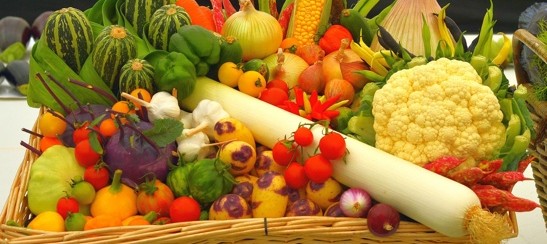Editor’s note: this article was originally published at WINForum.
Yeah yeah, blah blah we’ve heard it all before. But now, we may actually be listening! Research shows consumption of vegetables and fruits are UP (slightly) in the American diet but not quite to the level health experts recommend. The Choose My Plate Website says, “Eating vegetables provides health benefits — people who eat more vegetables and fruits as part of an overall healthy diet are likely to have a reduced risk of some chronic diseases. Vegetables provide nutrients vital for health and maintenance of your body.”
OK, but what does this mean for athletic performance?
From an athlete’s perspective, the vitamin and mineral content of vegetables has an important role to play in optimizing exercise performance. A number of vitamins and minerals provided by vegetables have a functional role in exercise performance and recovery following strenuous exercise. These nutrients can not be synthesized by the body so it’s essential that athletes consume a diet rich in fruits and vegetables to support daily training and recovery from training.
For example, the minerals we get from foods that grow in the ground (potatoes, carrots) provide potassium, vital to the body’s hydration status. And vegetables like spinach, broccoli, and kale contain calcium for muscle function and bone remodeling.
Inflammation, caused by exercise, is a hot topic in the current research. It appears that consumption of vegetables and consuming sports based diet is associated with lower levels of inflammation and therefore faster recovery times.
Pill, Potion or Produce?
While athletes can meet their recommended intake of vitamins and minerals through a nutritious, well chosen diet, many athletes choose to take vitamins and minerals, including antioxidants, in tablet form believing it will give them an edge over opponents.
Consumption of large doses of vitamins and minerals, which may be the norm for some athletes, is likely to do more harm than good. Megadoses may have toxic effects and can be detrimental to performance. Large doses of individual vitamins, in particular antioxidants, are not recommended in the research.
However, there may be situations where the use of supplements is beneficial. An adult formula broad spectrum multivitamin may be used when athletes restrict their total energy intake for weight loss or weight maintenance, during an intense competition schedule where there is a disruption to the normal eating patterns, and where availability of food is limited.
With the use of any vitamin and mineral supplement consult a Board Certified Sports Dietitian. See Sports Dietitians website: http://www.scandpg.org/sports-nutrition/ to find a Sports Dietitian located near you.
Come on, do I REALLY need my veggies?
Research has shown that a decreased intake of the vitamins and minerals found in fruits and vegetables can lead to fatigue, muscle damage, and impaired immune function, all of which can have detrimental effects on training and recovery for competition. A pill does not take the place of the nutrients, photochemicals and fiber all found in the real thing. Eat up, your GAME will thank you for it!
3 Sneaky ways to increase vegetable intake
Blender: Use your blender to mix up a colorful green smoothie. Use our WINFORUM Pinterest board for great recipes. Give it a shot — a whole days worth of vegetables in one glass! Bottoms up!
Frozen: In the winter, frozen veggies are equal (or better) than fresh veggies — and they are already prepped. Just toss them in the microwave or into your favorite pasta.
Use Spinach as Your Bed: Wilting spinach in a pan or in the microwave is an amazing way to pack in extra nutrition. Just put a pile in a bowl, heat it for 30 seconds or so and top with your favorite hot foods (chili, spaghetti, Thai food)
WINFORUM is a science based sport nutrition resource for student-athletes, parents, coaches and professionals in the field of athletics. Reach us at www.winforum.org.
Photo credit: Micolo J via Flickr/Creative Commons



